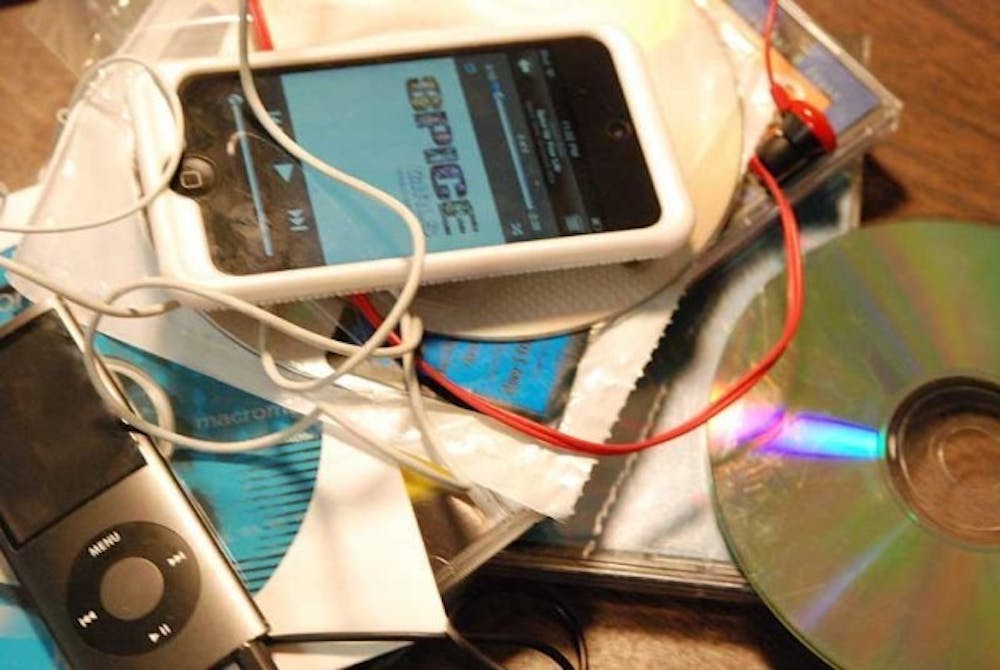The cost of music is on the rise.
The Spectrum polled 171 students on Tuesday regarding their methods of acquiring music. Of the students polled, 80 percent admitted to pirating music. However, that may be okay in iTunes' eyes, as 82 of the 98 people who said they buy music to some extent buy it from iTunes. With the price per song ranging from 69 cents to $1.29, iTunes is a musical mogul.
Yet, for those that chose to illegally acquire their favorite songs, only around 56 percent have done so in the last month. Perhaps that number would be significantly higher if the illicit, and infamous, student run DC++ hub was working this semester.
Although the hub is a local and convenient way to download media illegally, there is a litany of websites – such as the Swedishbased thepiratebay.org – which allow users to obtain torrent files of anything from Kanye West to Anti-Flag.
But fear not, students – you don't have to choose to be a saint or a sinner to fill your playlist. Numerous online options can keep you wallet full and happy and are the choice of 118 polled students.
Pandora is the most limited of these options. In its free form, Pandora has the benefits of giving you a mix and introducing you to new music, but has skip limits, monthly caps, and doesn't allow you to handpick which songs you would like to hear. Buying a subscription allows you to bypass daily skip limits, monthly caps, and eliminate ads.
Better choices include Gooveshark and Spotify, both which allow you to choose exactly which songs you want and when you want to listen to them. Buying a subscription merely dissipates the ads and allows for use on mobile devices. The two sites provide different selections, allowing for competition.
Other websites, including social networking paradigms Facebook and Myspace, as well as PureVolume and Last.fm, allow for free listening although their selections are quite limited.
Lastly, there are those dying anachronisms where you can pick up physical copies of CDs. Retail stores, which often charge more per album then iTunes' standard $9.99, only see a fraction of that amount as they clock in at around a third of music purchasers. Although record stores are a dwindling breed in today's economy, they do have their draws.
"There are a handful of people who do want to have a physical product," said Kelly Mordaunt, a manager at the Amherst/North Buffalo branch of Record Theater.
MP3s and illegal downloading have affected its sales immensely, reducing their inventory by about half and pushing sales into a slow decline, according to Mordaunt,
"There's defiantly a young clientele who shop here… [but] I tend to think college students are broke and download anyway," Mordaunt said.
Interestingly, there were 64 students who claimed to both buy and illegally download music, showing that, depending on the situation, both methods are used.
"[It] depends on the band. If it's a local band and they need the money then I'll buy it," said John Graff, a freshman undecided major. "If it's some big shot that doesn't need stuff then I'll just take it."
Although students overwhelmingly choose to download more, and more often, there is a portion of the student body that still feels music is well worth the money.
Email: arts@ubspectrum.com





